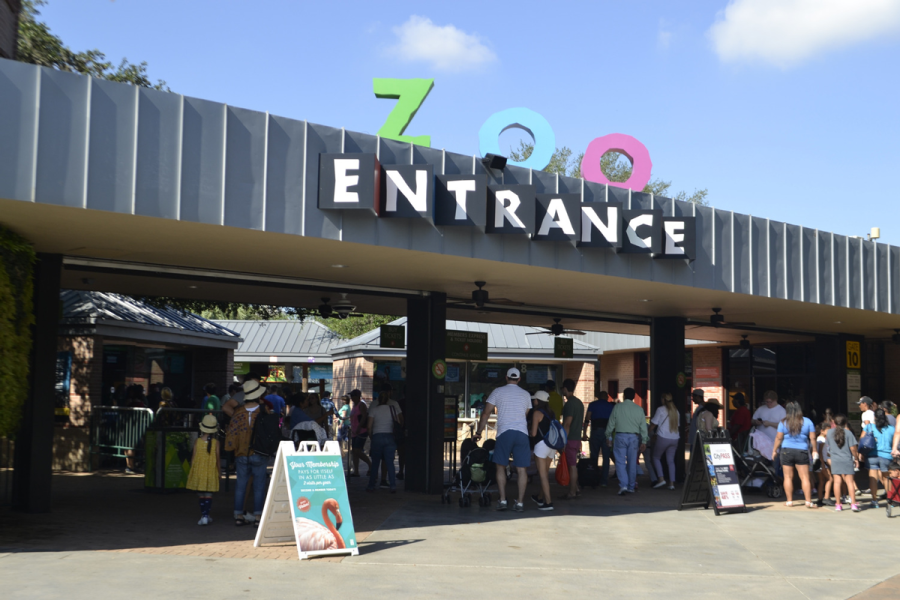Seasonal Staffing: The Power of AI

While the wonders of artificial intelligence (AI) are often hyped beyond recognition, AI-powered recruitment tools can offer real advantages to the global attractions industry.
In terms of recruiting, attractions have the ability to use AI to automatically crawl the web for the kind of candidates they want, auto-interview them via text chat or video, and auto-schedule the most promising job applicants for follow-up interviews by a hiring manager.
Other apps can enable attractions to automatically rifle through resumes submitted on their website for candidates with the exact qualifications the facility needs.
In addition, some forms of AI offer neuroscience games that seasonal job candidates can play— which glean the people who best exhibit the traits, skills, and characteristics an attraction is looking for in seasonal employees.
Sound wild? It is. AI is already a tool in use at Brookfield Zoo near Chicago.
“We have embraced video interviewing since the onset of the pandemic and/or doing most traditional in-person recruitment activities virtually,” says Sandi Dornhecker, senior vice president, human resources at Brookfield Zoo. “We also have automated many communications and use knock-out questions that help automate screening.”
Meanwhile, Kathie Nirschl, vice president of human resources at Aquarium of the Pacific in Long Beach, California, uses the sophisticated prescreening tool HireSelect to evaluate applicants’ aptitude, personality, emotional intelligence, and skill set. The results can be auto-fed to applicant tracking systems to uncover the best fit for a job opening.
Easing into AI
Harnessing AI at attractions presents new territory, while some facilities are content to stay with the tried-and-true when it comes to recruiting.
“All job opportunities are posted on the Houston Zoo’s website. We use Dayforce to manage applications. We have been using this platform for years and have not changed our protocols for hiring,” says Jackie Wallace, senior director of public relations at Houston Zoo in Texas.
In Palm Desert, California, The Living Desert Zoo and Gardens has also found success recruiting candidates online.
“We believe in fishing where the fish are. For the zoological profession, the job posting board for the Association of Zoos and Aquariums (AZA) is the most reliable way to get our job openings in front of qualified individuals,” says CEO Allen Monroe.

Jumping Into AI
For attractions ready to embrace web recruiting that is often augmented by AI, some distinct advantages await. Here’s a sampling of leading-edge AI services that attractions can use to be more successful in recruiting employees—especially younger, entry-level candidates who tend to “live” online and on social media:
- Robot Vera: A chatbot recruiter, Robot Vera can be embedded on a website to instantly interview people who submit resumes or apply for a job with a facility in similar ways.
Core to the application is a self-learning neural network, which was initially trained to chat with people by reading Wikipedia, “watching” TV shows, and studying countless help wanted ads and job interview questions. Moreover, each time Robot Vera interacts with a potential candidate, it’s programmed to learn from that experience and be smarter chatting with the next potential recruit.
Robot Vera can also automatically scan resumes on job sites, phone candidates with the right qualifications to scoop ice cream or operate a carousel, and then propose an interview on the spot. Be ready, Robot Vera can be relentless: The software can make up to 10,000 phone calls simultaneously to bring in new recruits. - VCV: Similar to Robot Vera, VCV can screen hundreds of thousands of resumes submitted to an attraction to find the kind of staff needed each summer. The system then reaches out to candidates, offering either an online chat or phone call interview.
Like Robot Vera, VCV can make hundreds of calls per minute. The program uses voice recognition technology to “talk” with job candidates and inform them on details about jobs, ranging from admissions to merchandise.
The system can also be programmed to use facial recognition—combined with predictive analytics—to screen for the personal characteristics exhibited by a job candidate in an online video interview. Videos of select interviews can then be sent to a games manager or rides manager who is conducting the hiring at an attraction for a final review. - Mya: Mya chats up people applying for jobs, as well as good prospects. After screening and qualifying, Mya sends its picks to an applicant tracking system, along with a text transcript of the interview with its preferred candidates.
- Entelo: The key component of Entelo’s software is an AI-driven web crawler, which looks into every nook and cranny of the web—including LinkedIn, Facebook, and Twitter—to find candidates that match the kind of seasonal employees an attraction needs.
Entelo also automatically sorts, analyzes, and ranks a candidate’s eligibility for an open position across several attributes, including job title, work history, skills, likeliness to leave, their current role, and more.
Promising candidates are also directly contacted by Entelo, either automatically, or on a schedule designed by the person hiring at a facility. And its follow-up messaging helps ensure the human resources team stays in contact with prospects. - ZipRecruiter: One of the largest online employment marketplaces in the U.S., ZipRecruiter offers an AI component that can be used to surface the most promising candidates on its board. The feature works by studying how employers rate the people applying for work on ZipRecruiter.
The jobs service uses those insights to surface the traits, skills, and other characteristics highly desirable candidates exhibit—and then looks for those same characteristics in new applicants who could operate a roller coaster or provide counter service at a quick-service restaurant. - Pymetrics: Pymetrics is a specialized AI human resources tool that enables companies to assess the character and skills of prospective employees via games it provides candidates to play. Pymetrics designs those games by inviting an organization’s current, most successful employees to play its neuroscience games, and then gleans data on their traits and strengths, based on the way those employees play the games.
Subsequently, Pymetrics uses that data to judge potential hires who play the same games, looking for people who have the same traits and characteristics of the successful people already working at an attraction. - Arya: Arya offers attractions-specific web recruiting by studying the traits, skills, and characteristics of employees considered to be the most successful and then searches the web for job candidates who have similar profiles. The program also gets smarter over time about the people an attraction is looking for by studying the performance of existing employees based on performance reviews, promotions received during the summer, and the number of seasons they stay at an attraction.
